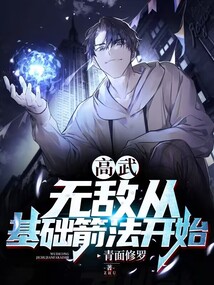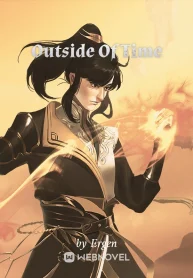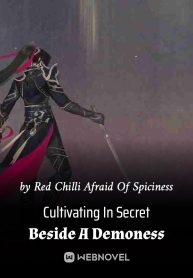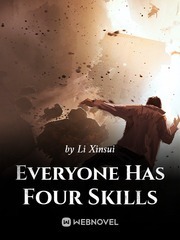"May the lawyers from both sides present their opening statement," The Judge ordered and George promptly stood up to his feet.
"Your Honor, we are here today to defend my client. Mr. Poul Nielsen and Mr. Jonathan Axelsen, the founders of the Axelsen and Nielsen Electric Manufacturing and Distribution Company against the baseless and unjustified claims of Mr. James Russell, the founder of the Russell Illuminating Company, where he stated that my client stole his idea of power generation and incandescent light bulbs."
"Thank you, Your Honor," said the opposing lawyer, rising from his seat. "We are here today on behalf of our client, Mr. James Russell, the founder of the Russell Illuminating Company. Mr. Russell's groundbreaking work in power generation and incandescent light bulbs has been the foundation of the electric industry as we know it today. Unfortunately, our client's ideas were stolen by the defendants, Mr. Nielsen and Mr. Axelsen, who used them to start their own electric manufacturing and distribution company, the Axelsen and Nielsen Electric Manufacturing and Distribution Company.
"Mr. Russell's intellectual property rights have been violated, and we will prove beyond a shadow of a doubt that our client's ideas were unlawfully appropriated by the defendants. They have profited unfairly from Mr. Russell's work, and we are seeking just compensation for the harm that has been done."
"As we move forward with this trial, we urge the jury to consider the evidence carefully and to hold the defendants accountable for their actions. Thank you, Your Honor."
"Very well. Mr. Harding, you may now present your arguments and evidence."
George then proceeded to present a series of technical arguments and evidence that challenged Russell's patents and questioned the validity of his claims.
"First, let us examine Mr. Russell's patent for the distribution of electrical power," said George "It is based on the idea of a central generating station that sends electricity out to customers through a network of wires. This is a basic concept that has been known for decades, and Mr. Russell did not invent it."
"But my client has patented the use of direct current for this purpose," the lawyer interjected.
"Indeed, he has," said George. "But the use of direct current for power distribution is not a novel idea. It has been known for many years that direct current can be used to power motors and lights. Mr. Russell's patent simply describes a well-known concept in a slightly different language."
George continued his arguments.
"Now, let's move on to Mr. Russell's patent on the incandescent light bulb. Yes, it is true that Mr. Russell was the first to invent the incandescent light bulb, but my clients have improved upon his design. The Axelsen and Nielsen Electric Manufacturing and Distribution Company's light bulbs have a two-piece stopper, and a tungsten filament, and can stay lit for many days. This is a significant improvement over Mr. Russell's bamboo filament bulbs, which were fragile and had a short lifespan."
"Furthermore, my clients did not copy Mr. Russell's design. They developed their light bulbs independently and with no knowledge of Mr. Russell's work. There is no evidence that they had access to his designs or that they intentionally copied them."
"In fact, Mr. Nielsen and Mr. Axelsen were not even in the same field as Mr. Russell until after they had developed their own designs. They were working in the steam locomotive industry when they started experimenting with electric light bulbs. It was only after they had developed their own designs that they decided to enter the electric industry."
George then presented evidence to support his arguments, including the development timeline of his clients' designs and testimony from witnesses who had worked with Mr. Nielsen and Mr. Axelsen.
"As you can see, Your Honor, my clients did not infringe upon Mr. Russell's patents. They developed their own designs independently and made significant improvements to the incandescent light bulb. We ask that this case be dismissed and that Mr. Nielsen and Mr. Axelsen be allowed to continue their work in the electric industry."
James Russell listened intently to George's arguments, feeling a mix of anger and frustration at the lawyer's attempts to discredit his work. As George finished presenting his evidence, James' lawyer rose to his feet and addressed the court.
"Your Honor, I must object to Mr. George's arguments. While it is true that the concept of power distribution through a network of wires was known before my client's patent, it was my client's invention that made it practical and efficient. Mr. Russell's patent was based on the use of direct current, which was not a well-known concept at the time. My work laid the foundation for the entire electric industry, and it is unfair for Mr. Nielsen and Mr. Axelsen to profit from it without compensation."
"As for the incandescent light bulb, it is true that my design used a bamboo filament, which was not as durable as the tungsten filament used by Mr. Nielsen and Mr. Axelsen. However, the use of a filament to produce light was a completely new idea at the time. My client's patent covers the concept of using a filament to produce light, regardless of the specific material used."
"Furthermore, there is evidence that Mr. Nielsen and Mr. Axelsen had visited my client's power station. Where they will see the designs of the light bulbs and the process of generation of electricity itself. It is highly unlikely that they could have developed their own designs without being influenced by my work."
The lawyer then presented his own evidence, including letters of appointment and schematic diagrams that showed the similarity between his ideas and those of Mr. Nielsen and Mr. Axelsen.
"In conclusion, Your Honor, my client's intellectual property rights have been violated, and they deserve just compensation for the harm that has been done. We ask that the court rule in our favor and order Mr. Nielsen and Mr. Axelsen to pay damages for their infringement."
The judge listened carefully to both sides' evidence and arguments but he wasn't convinced yet by one side. So he sighed and flickered his gaze to George.
"Mr. Harding, do you have an objection to his defense?"







